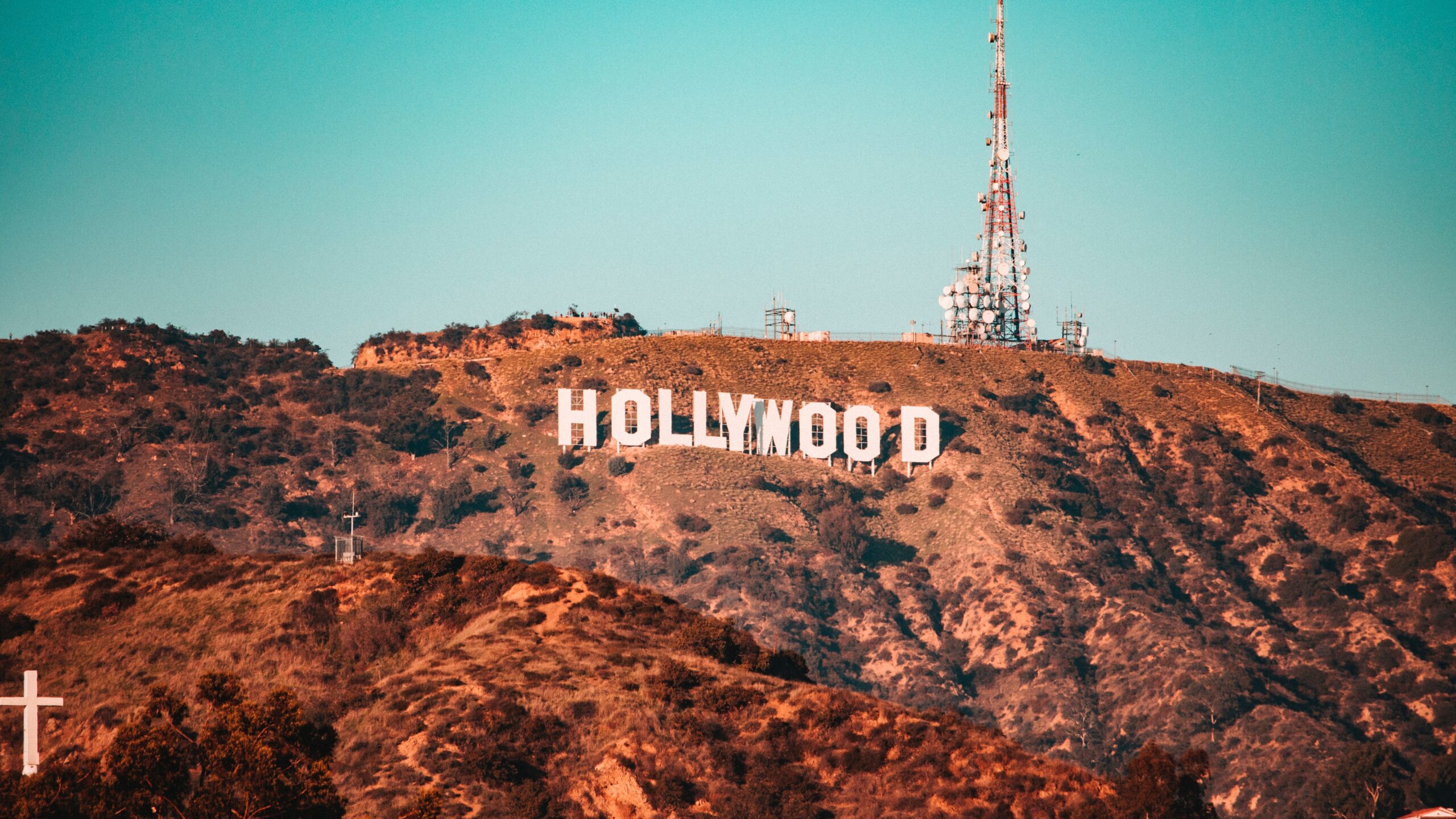Film
Hollywood Is Terrible at Climate Change Movies—But Here Are 7 of the Best
24 Apr, 20

Hollywood
Photo by Vincentas Liskauskas on Unsplash
Climate change is a difficult concept to wrap one’s mind around. Who wants to spend too much time thinking about the dangers of global temperatures rising 0.5 degrees because 100 companies are responsible for 71% of global emissions?
Hollywood has been slow to create movies about climate change, and when it has, the products haven’t always been successful. “It’s a tricky thing, this topic. Its vastness almost doesn’t agree with its reality; we can imagine big things like that in fiction, but only there,” writes Richard Lawson for Vanity Fair.
The problem could be with our resolute desire to tell heroes’ stories or to find easy, triumphant resolutions. “It’s also hard to locate a singular hero in such a global narrative; what grizzled hunk or butt-kicking babe is going to single-handedly stop the rise of the oceans, reorder our weather, and repair the sky? Perhaps there are some anti-fossil-fuel-industry movies to be made, but how would they compete in a culture still obsessed with gas-guzzling means of transport?” Lawson continues.
Still, climate change has mobilized filmmakers to make some impressive documentaries and movies about the destruction of our planet and the possibly upcoming end of the world. Here are 7 movies to watch if you want to feel a renewed sense of connection to the planet—as well as a new desire to fight for humanity’s survival.
Honeyland
This gorgeous, reverential documentary tells the story of a beekeeper named Hatidze who lives with her mother in a remote part of Macedonia, until a nearby family moves in—and tries to convert her hives into a business. It’s the tale of one woman’s delicate relationship with the land, irrevocably distorted by her neighbor’s desire to develop it.
Honeyland [Official Trailer] – In Theaters July 26, 2019www.youtube.com
It’s also incredibly beautiful; in many luxuriant shots, glowing yellow honey provides a stark contrast against desolate wilderness. The New York Times called it “sublime and strange and full of human and natural beauty — as anything I’ve ever seen in a movie.”
“Most of the world, not least its leaders, can’t be bothered to appreciate what Hatidze knows in her bones — that the ecosystems which sustain us are interconnected and surprisingly frail,” writes John Powers for NPR. “She knows that if you want honey, you must find a way of living in harmony with the bees that create it. If you don’t, you will be very badly stung.”
Interstellar
Christopher Nolan’s trippy space odyssey is a journey through quantum physics and spaceflight, but its narrative centers around an astronaut employed on an expedition to find another planet to colonize, because the current Earth is dying of ecological catastrophe.
Interstellar Movie – Official Trailerwww.youtube.com
The movie’s use of climate change received mixed reviews. “Nolan has set up a false choice: In the world of Interstellar, mankind can either leave the planet behind, or it can stay here and die,” writes Noah Gittell for The Atlantic. “The choices that humans—here in the real world—actually have to make regarding climate change and the future of the earth are much more complicated, and are nowhere to be found onscreen.
“Why does Hollywood keep getting the environment wrong? Maybe it’s for the same reasons that politicians have been unable to fix it: Because the ways that climate change and other environmental crises can be addressed are not dramatic or awe-inspiring,” Gittell continues, “and left me wishing its solutions did not exist in the dirt or the star, but somewhere in between.” Interstellar may argue that transcendent, interdimensional love is the answer to everything, which seems a far cry from the type of fierce action needed to stop the climate crisis—but then again if we’d been acting from a place of love instead of greed, maybe we we wouldn’t be in this mess in the first place.
Beasts of the Southern Wild
This film focuses on a little girl named Hushpuppy (Quevenzhané Wallis), who is being raised by her father in a coastal region of New Orleans called the Bath Tub. She has a “head full of premonitions of prehistoric aurochs that her teacher tells her will be released by melting ice caps,” writes Phil Hoad for The Guardian. Hushpuppy’s visions “represent a fear of ancient, resurgent nature, but this southern magical-realist fable, inspired by the Hurricane Katrina disaster, bets on human resilience being more than a match.”
BEASTS OF THE SOUTHERN WILD: Official Trailerwww.youtube.com
After a terrible storm drenches the region (a clear Katrina metaphor), the US government tries to relocate the people, but Hushpuppy makes her way back to her home, ultimately rediscovering her relationship to herself and the land. “Over the course of the film her view evolves into a more enlightened, complete view of nature as a flowing system—something in which everything has its place and everything plays its part. She comes to peace with it,” said director Behn Zeitlin.
The film received mixed reviews for its portrayal of poverty, race, and class, with some arguing that it ignored these realities. Others thought it exposed them. “This film carries the nation’s baggage; it investigates a culture of racial neglect, creates a zone of history-making for Katrina’s disposable bodies, and provides a steady critique of white capital. The film’s rags and wastelands—its killing fields—become powerful emblems of the Southland’s (and our nation’s) commitment to toxic inequality,” writes Patricia Yaeger. “But something else rages in this film; it refuses the realism of social critique and advances instead into hubris land, into a new realm of myth making for the twenty-first century.”
Snowpiercer
Bong Joon Ho’s pre-Parasite sci-fi action film places climate change as an eerie backdrop that ultimately becomes an annihilating force. The plot revolves around a future where climate change becomes so catastrophic that humans accidentally deep-freeze the planet as part of a geoengineering effort. In this future, capitalism lives on as the planet dies, the only remaining people live on a massive train, and inequality becomes so stark that the have-nots eat protein bricks and live in windowless box-like homes while the rich dine on sushi in futuristic aquarium and clubs. Class warfare erupts, inevitably, and then the reckoning comes.
Snowpiercer: Official Trailer | Premieres May 17 | TNTwww.youtube.com
“In Snowpiercer, it’s more about how big business tries to both use and control nature. And how it backfires on them. Nature takes its revenge and sends them back to the ice age,” said Bong in an interview. “This is an aspect that is different from the graphic novel [source material] (by Jacques Lob, Benjamin Legrand and Jean-Marc Rochette). I wanted to make a story change because I felt that climate change is more current of an issue and will continue to be, because it’s not in the interest of big business to change, but to control.”
Ultimately, the film is a critique of human delusion. “Even when trying to conceive the end of everything, we can’t quite imagine the end of ourselves…Yet Bong’s refusal to show this inevitable extinction is a damning and self-aware reflection of our own perceived eternality,” writes Catie Annear.
For some critics, it isn’t enough. “The most fantastical thing about some of these films isn’t their doomsday scenarios. No, the real stretch is the idea that humanity — or at least some privileged slice of it — will be able to remove itself from the disaster,” writes Jason Mark in a critique of Interstellar and Snowpiercer. Even the most eco-conscious climate films can’t escape from the shadows of our delusional anthropocentrism, our belief that the world revolves around us and needs us at all.
Wall-E
This moving Pixar film is a heart-wrenching and incredibly thought-provoking ecological fable that centers around a robot named Wall-E, left to clean up Earth after its only remaining civilians have left on a spaceship after destroying the planet.
“The film paints a pretty stunning picture of the deleterious effects of letting two things continue unchecked: a society’s insatiable need to consume (cheap products, entertainment, food, resources), and private industry’s drive for profit when it overtakes public good,” writes Alissa Wilkinson for Vox.
Wall-E – Trailerwww.youtube.com
Wall-E’s planet is ruined, a projection of what our planet could so easily become. Yet when Wall-E finds a small plant growing out of the debris, he also finds hope that humans could return to Earth one day.
“We all need to act, and Wall-E‘s small sprout of green can be our instigator, reminding us that even the tiniest actions can result in big effects,” writes Casey Cipriani for Bustle, in an article about how Wall-E actually contains blueprints for how we can fight climate change in the present day. “There are a lot of small actions you can take on our own to act on behalf of our environment. For one thing, calling representatives is vital to make your concerns heard. You can also attend local events or look into local sustainability. In addition, following websites focuses on environmental news and updates can make a huge differences in your awareness.”
The Age of Stupid
The Age of Stupid is a 2008 drama-documentary hybrid about a man in 2055, poring over old archival footage wondering why we didn’t stop climate change when we had the chance.
London is flooded, Australia is burning, the Amazon has burned, and nuclear war destroyed India—those are only a few of the eerily prescient predictions the film made. In this 2055, people are starving, civilization has collapsed and only a few humans remain in shanty towns.
What If… | Promo | The Age of Stupidwww.youtube.com
The protagonist, Pete Postlethwaite, plays an archivist who keeps track of humanity’s art from the pre-apocalyptic world. He watches real-life archives from the early 21st century, focusing on six real people who each represent various aspects of the climate crisis: a French mountaineer, a British family trying and failing to build wind farms, an Indian businessman building a low-cost airline, a Nigerian woman trying to make a living in oil-rich yet extremely poor Africa; and a “hero” of Hurricane Katrina. The film explores why humanity is failing to take action against the seminal crisis of our time.
“Once you really understand climate change, it would be ridiculous to work on anything else,” said director Franny Armstrong. “As long as I can stand—or as long as I can type—this is what I’m going to do.” “Why didn’t we save ourselves when we had the chance?” Pete asks in the film. The film actually wound up changing some of the UK’s coal policies, but it obviously wasn’t enough. Since the film was released, the Earth’s climate has raised by a degree, and we’re heading for 4-5 degrees if we keep releasing emissions.
The problems remain, as do the solutions—but the window in which they might be implemented is closing. “We’ve got the technology, we’ve got the land, we’ve got the wind,” the British wind-farmers say in the below short, which revisits the film a decade after its release. “We just need the will. We haven’t had the right focus.”
The Age of Stupid revisited: what’s changed on climate change?www.youtube.com
Dark Waters
Environmental activist Mark Ruffalo plays a lawyer fighting an evil corporation called DuPont in this 2019 drama. The film received mixed reviews, but it’s based on an enraging and fascinating true story, first reported in the New York Times article “The Lawyer Who Became DuPont’s Worst Nightmare” by Nathaniel Rich. When a corporate lawyer named Rob Bilott discovered that cattle were dying in Pennsylvania, he realized it was the fault of DuPont. The company was pouring chemicals into the land, poisoning humans as well as livestock.
DARK WATERS | Official Trailer | In Theaters November 22www.youtube.com
The film dramatizes this story, but the real-life message at its heart is its crown jewel. “What’s entirely impossible as the credits roll, is to leave without a palpable sense of fury, a real world, off-screen outrage directed not just at a particular issue but at a particular company,” writes Benjamin Lee. “It shouldn’t be this rare to see a film in 2019 imploring us to bear witness to crimes committed by a hugely powerful, and profitable, corporation, one that’s named and shamed repeatedly throughout, but it still feels like an outlier.”
In a world where Flint still doesn’t have clean water and where massive corporations continue to fund the climate crisis by keeping the fossil fuel industry alive, the connections between our disregard for each other and our disregard for the earth are growing clearer. Legal action against these corporations will be an important part of any movement to stop climate change.
We need new climate change stories more than ever—stories that make us see the problems, but that also present different futures while motivating us to act in the present. These movies are a start, but perhaps the age of cli-fi has just begun. Storytellers, take note.
- Chris R from Tommy Wiseau’s “The Room” Is Running for Congress … ›
- “IT Chapter Two”: How the Movie Fails the Book – Popdust ›
- Popdust ›
- Six Unbelievably Bad Sequels in Development ›
- Best Protest Signs You Missed at the Global Climate Strike – Popdust ›
- Golden Globes Speeches Bring Attention to Climate Crisis – Popdust ›
- TOP 5 | What movies are coming out the July 28th weekend … ›
- What Happened to Disaster Movies? Oh, We’re Living in One … ›
- 6 Unbelievably Bad Sequels in Development – Popdust ›
- “Climate Town” Is a YouTube Channel Out to Save the World – Popdust ›
- Michael Moore Drops New Climate Change Doc ‘Planet of the … ›
- Spoiler alerts: the five best climate-change films | Environment | The … ›
- Climate change in the movies in 2018 » Yale Climate Connections ›
- Why Are There No Good Movies About Climate Change? – Nexus … ›
- 10 Films About Climate Change To See This Fall In New England … ›
- Most Popular Climate Change Movies and TV Shows – IMDb ›
- Movies That Teach Kids About Climate Change ›
- Can Hollywood Movies About Climate Change Make a Difference … ›
- 6 Must-See Movies about Climate Change | Climate Reality ›
- The top 10 climate change movies of 2019 | TheHill ›













